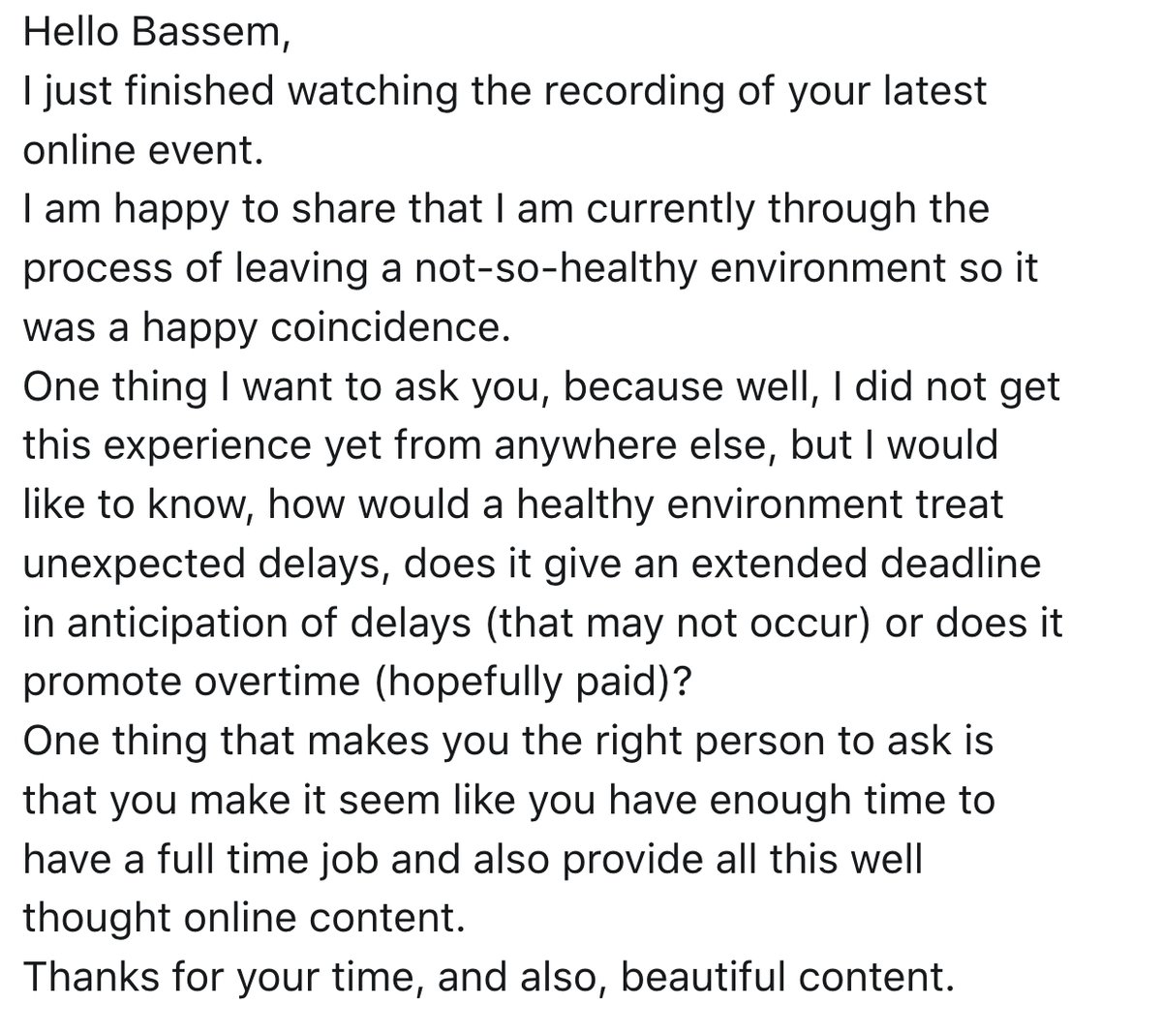
At some point, in everyone's tech careers, the time spent on refining technical skills will lead to generating less business value.
The law of diminishing returns kicks-in.
Let me explain – a 🧵
The law of diminishing returns kicks-in.
Let me explain – a 🧵

1/ As professional software engineers working in for-profit organizations (whatever the scale) our main objective is to increase business value.
This is an umbrella objective under-which everything else falls.
This is an umbrella objective under-which everything else falls.
2/ Our compensation is "often" tied to our ability to increase / generate business value.
At the beginning, the more we enhance our technical skills the more business value we will be able to generate because:
We'll be using those skills to build faster, more reliable solutions
At the beginning, the more we enhance our technical skills the more business value we will be able to generate because:
We'll be using those skills to build faster, more reliable solutions
3/ However, with time, an augmentation of technical skills will not lead to building faster or better solutions.
The additional technical skills will have marginal benefits focused on very narrow optimizations
Some of these optimizations might lead to major business returns
The additional technical skills will have marginal benefits focused on very narrow optimizations
Some of these optimizations might lead to major business returns
4/ But that's not often the case.
The tipping point beyond which the law of diminishing returns kicks-in changes based on a lot of variables.
Industry vertical, complexity of the environment, individual ability, talent supply and demand etc.
The tipping point beyond which the law of diminishing returns kicks-in changes based on a lot of variables.
Industry vertical, complexity of the environment, individual ability, talent supply and demand etc.
5/ That's why companies cannot keep growing individuals in technical tracks because their ever increasing compensation will outweigh the business value they generate.
Of course there are exceptions (distinguished engineers in big tech) but these are outliers not the norm.
Of course there are exceptions (distinguished engineers in big tech) but these are outliers not the norm.
6/ I'm going to be talking about this and more in my live stream in 3 hours from now. The stream will also be recorded and available on my channel and podcast.
Make sure to tune in if you're interested in this topic.
#SoftwareEngineering

Make sure to tune in if you're interested in this topic.
#SoftwareEngineering

• • •
Missing some Tweet in this thread? You can try to
force a refresh






